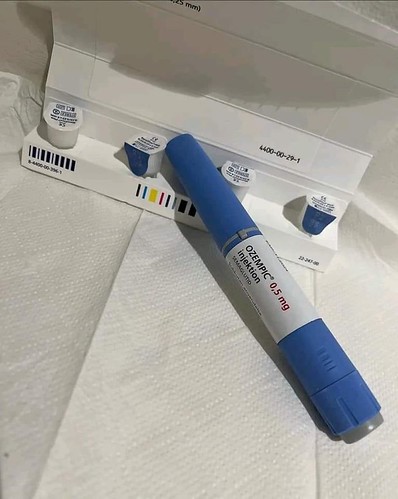More Americans taking Ozempic will boost the US economy: Goldman Sachs

More widespread use of powerful weight-loss drugs like Ozempic in the U.S. could boost the economy in the coming years, according to Goldman Sachs strategists.
The bank estimates that weight-loss drugs, called GLP-1 agonists, could increase the nation’s gross domestic product by an extra 1% over the next decade, the equivalent of about $360 billion per year.
The thinking behind Goldman’s forecast is that poor health is a burden to economic growth, largely because it limits the number of available workers and hours worked due to increased missed days at work as a result of “sickness and disability, early deaths and informal caregiving.”
In fact, Goldman said that GDP in the U.S. would potentially be more than 10% higher if poor health outcomes did not affect the labor supply.
“The main reason we see meaningful upside from healthcare innovation is that poor health imposes significant economic costs. There are several channels through which poor health weighs on economic activity that could diminish if health outcomes improve,” the analysts, led by Jan Hatzius, wrote.
Drug companies are vying to join what has largely been a two-horse race to make obesity drugs.
Novo Nordisk the maker of Ozempic and Wegovy and Eli Lilly, the producer of Mounjaro, skyrocketed in popularity last year amid runaway demand for the drugs, which are taken by A-listers including Oprah Winfrey and Tesla CEO Elon Musk.
Similar drugs could enter the market depending on clinical trials.
The market is expected to top $100 billion by 2030, according to one estimate from JPMorgan.
Goldman projects that anywhere between 10 million to 70 million Americans will be taking weight-loss drugs by 2028.
The wide range stems from uncertainty over clinical trials, health insurance and available supply.
“If GLP-1 usage ultimately increases by this amount and results in lower obesity rates, we see scope for significant spillovers to the broader economy,” the analyst note said. “Academic studies find that obese individuals are both less likely to work and less productive when they do.”
The economy would grow by 0.4% in a scenario where there are 30 million users, and 1% if 60 million Americans were taking these types of drugs.
“Historically, health advancements have lowered the number of life years lost to disease and disability by 10% per decade in DM economies, and we estimate that a 10-year step forward in health progress in excess of current trends could raise the level of US GDP by 1%,” Hatzius said.


